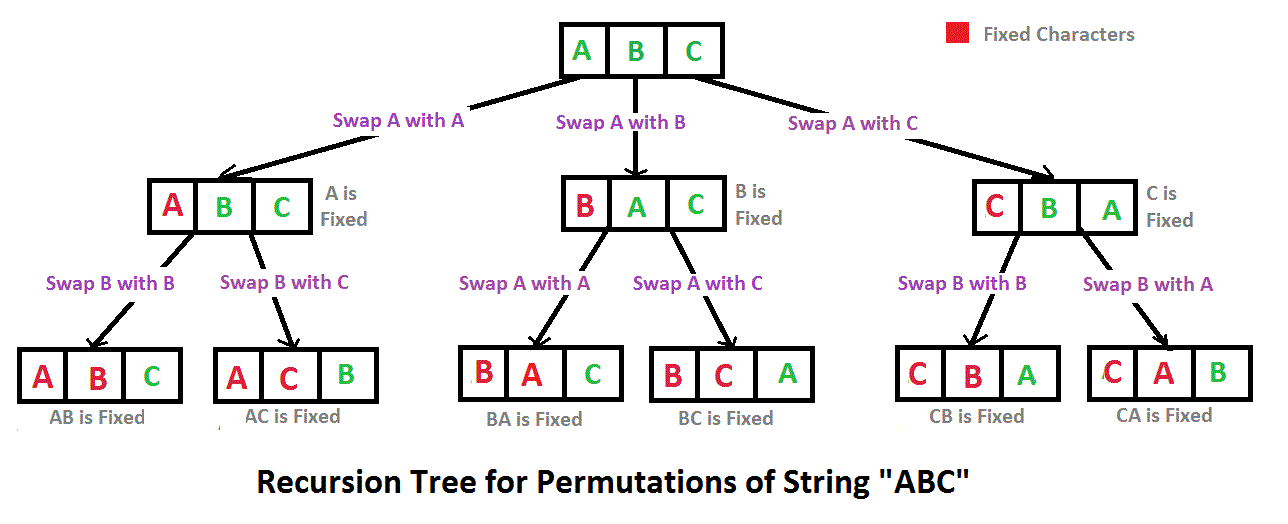Permutation
Permutation of a set is simply a different ordering of the elements. For the given string, we can order the characters into different locations producing different string. All such strings constitute the permutation of that string.
Example: Permutation of a string XYZ are:
XYZ XZY YXZ YZX ZXY ZYX
For given string of length $n$ there are total of $n!$ permutations.
XYZ XZY YXZ YZX ZXY ZYX
Algorithm - For String with Unique Characters
As explained HERE, following image explains how we can compute the permutations of given string.
In this algorithm,
- For each character in the input String:
- Select the character and keep it fixed.
- Compute permutations of remaining $n-1$ characters.
- Finally append all those permutations of $n-1$ characters to the character selected in the $Step\ 1$.
Algorithm - For String with Duplicate Characters
Algorithms described above will also work with strings with duplicate characters. However, the algorithm will also produce duplicate results. So a simple solution will be to check for unique solutions, probably using Hashing, in the above solution.Problem
The problem with this solution is, for a string with two many duplicate characters, it will end up computing all $n!$ solutions while there are very few number of solutions.
Example: String AAAAAAAAAAAAAAAAAAAAAAAAAAAAAAAAAAAAAAAAAAAAAAAA has only one permutation which the input string itself.
But the above algorithm will be doing a lot of unnecessary computation.
But the above algorithm will be doing a lot of unnecessary computation.
Solution
So for string with duplicate entries, we can write efficient solution. For string with all unique characters, its performance will still become $n!$.The solution is very much similar to the Coin Exchange Problem.
In this algorithm,
- We can create Frequency table which keeps count of all unique characters in the string.
- For each unique character if it count is Greater Than 0:
- Append the character to Current Permutation. When length of the Current Permutation is equal to the length of input string, we have one solution.
- Decrease count by 1.
- Recurse through the same updated Map.
- Reset or Increase the count by 1.
Implementation (Both Method)
Following is the implementation for both the method.

No comments:
Post a Comment